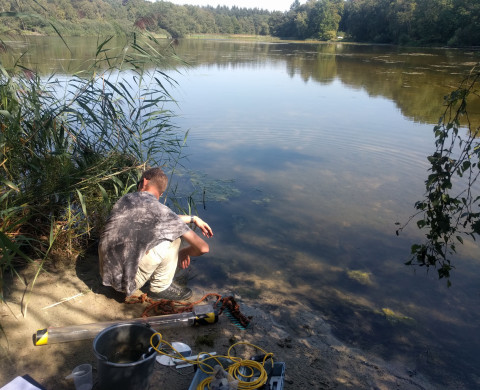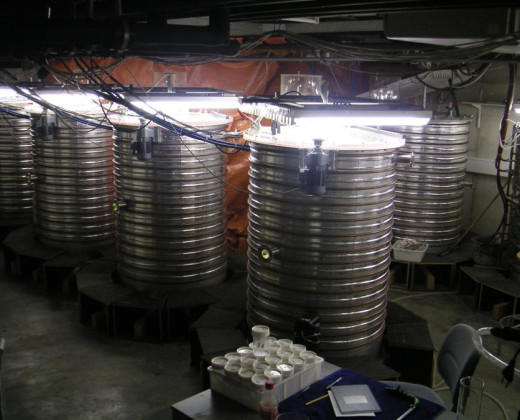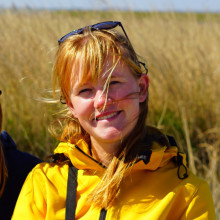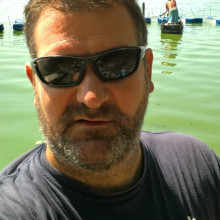AKWA (Aquatic Knowledge Centre Wageningen)

AKWA is an initiative of the department of Aquatic Ecology (NIOO-KNAW), together with the Aquatic Ecology & Water Quality Management Group of Wageningen UR. Stimulated by the growing interest for translational science in the Netherlands, AKWA wants to put her valuable scientific knowledge into practice. Therefore, AKWA seeks to collaborate with stakeholders with a vested interest in water, such as water boards, water researchers, consultancy agencies, nature managers, and civil-technical bureaus.
AKWA helps solving water issues
We offer research, advice and training in the field of water quality and functioning of aquatic ecosystems. We can draw on a broad array of approaches, such as field monitoring, field and indoor-enclosures, controlled-lab experiments, time-series analyses, advanced statistics and model-analyses. We have access to the excellent experimental and analytical facilities of the NIOO-KNAW.
Who is AKWA?
AKWA is imbedded in a group of researchers with a sound scientific background, both at the NIOO and the WUR. Active within this group are plankton specialists, macrophyte specialists, microbial specialists, modelers and biochemists, with both a broad as well as deep understanding of the functioning of aquatic ecosystems. AKWA is pulled by aquatic ecologist Dr Lisette N. de Senerpont Domis, with more than twenty years’ experience in aquatic ecology and a special interest in global change. Dr. Miquel Lurling coordinates the WUR activities within AKWA. He has over 20 years of experience in aquatic ecology, with a special interest in eutrophication and harmful algal blooms.
AKWA translates state-of-the art fundamental scientific knowledge to encompassing solutions for the complex problems water users face in the light of fast environmental changes.
AKWA translates state-of-the art fundamental scientific knowledge to encompassing solutions for the complex problems water users face in the light of fast environmental changes
Facilities
Our modern, state of the art research facilities allow us to experimentally study a variety of aquatic organism groups in experimental laboratory settings ranging from small-scale flow through systems, photobioreactors and chemostats over microcosms to mesoscale laboratory ecosystems (1000-L Limnotrons).

People
-
Prof. dr. Lisette de Senerpont Domis
- Function
- Senior Researcher

-
Dr. Sven Teurlincx
- Function
- Project Manager | Researcher

-
Berte M. Gebreyohanes Belay
- Function
- PhD Candidate
-
Rosan van Halsema MSc
- Function
- PhD Candidate

-
Asmita Dubey MSc
- Function
- PhD Candidate

-
Em. Prof. Ellen van Donk PhD
- Function
- Guest researcher

-
Laura Seelen PhD
- Function
- Guest researcher

-
Yike Li MSc
- Function
- PhD Candidate

-
Dr. ir. Miquel Lurling
- Function
- Guest researcher

Projects
Peer-reviewed publications
A versatile model of nutrient retention in relation to ecosystem state in shallow lakes
Addressing grand ecological challenges in aquatic ecosystems
Artificial light at night reduces emergence and attracts flying adults of aquatic Diptera
Epiphyton phenology determines the persistence of submerged macrophytes
Corrigendum to <Effect of an antidepressant on aquatic ecosystems in the presence of microplastics
Managing the impacts pf extreme climatic events related to inputs of organic matter on the ecosystem services provided by water supply reservoirs
Effect of an antidepressant on aquatic ecosystems in the presence of microplastics
Global Lake Health in the Anthropocene: Societal Implications and Treatment Strategies
What makes a cyanobacterial bloom disappear? A review of the abiotic and biotic cyanobacterial bloom loss factors
Hot summers raise public awareness of toxic cyanobacterial blooms
Understanding the differential impacts of two antidepressants on locomotion of freshwater snails (Lymnaea stagnalis)
Nationaal Park Steden
Long-term exposure to experimental light affects the ground-dwelling invertebrate community, independent of light spectra
Process-based modeling for ecosystem service provisioning
Towards climate-robust aquatic ecosystem restoration
The hidden impact
Structure and Productivity of Aquatic Ecosystems
Timing matters
Connecting lakes: Modeling flows and interactions of organisms and matter throughout the waterscape
Regime shifts in shallow lakes explained by critical turbidity
Evidence that long‐distance dispersal of aquatic invertebrates by ducks increases with propagule size
New paths for modelling freshwater nature futures
Factors influencing submerged macrophyte presence in fresh and brackish eutrophic waters and their impact on carbon emissions
Stressors in a bottle
Monitoring contaminants of emerging concern in aquatic systems through the lens of citizen science
Salinisation effects on freshwater macrophyte growth and establishment in coastal eutrophic agricultural ditches
Moving beyond standard toxicological metrics: the effect of diclofenac on planktonic host-parasite interactions
Drastic reduction of nutrient loading to a reservoir alters its resistance to impacts of extreme climatic events
Monitoring biological water quality by volunteers complements professional assessments
Phytoplankton responses to repeated pulse perturbations imposed on a trend of increasing eutrophication
Making waves: Lessons learned from the COVID-19 anthropause in the Netherlands on urban aquatic ecosystem services provisioning and management
Nationaal Park 3.0
The biogeography of relative abundance of soil fungi versus bacteria in surface topsoil
Drivers of variability in disinfection by-product formation potential in a chain of thermally stratified drinking water reservoirs
Smart Nutrient Retention Networks
Towards a good ecological status? The prospects for the third implementation cycle of the EU Water Framework Directive in the Netherlands
Het verondiepen van diepe uiterwaardplassen met slib
On a razor's edge
A generically parameterized model of Lake eutrophication
Long-term trends and seasonal variation in host density, temperature, and nutrients differentially affect chytrid fungi parasitising lake phytoplankton
Corrigendum; “An affordable and reliable assessment of aquatic decomposition
Flipping Lakes: Explaining concepts of catchment-scale water management through a serious game
Innovative Floating Bifacial Photovoltaic Solutions for Inland Water Areas
Stratification strength and light climate explain variation in chlorophyll a at the continental scale in a European multilake survey in a heatwave summer
Securing Biodiversity, Functional Integrity, and Ecosystem Services in Drying River Networks (DRYvER)
Storm impacts on phytoplankton community dynamics in lakes
Serving many masters at once
Integrated impact assessment of adaptive management strategies in a Dutch peatland polder
Warming and CO2 effects under oligotrophication on temperate phytoplankton communities
Exploring How Cyanobacterial Traits Affect Nutrient Loading Thresholds in Shallow Lakes
Changing human-ecosystem interactions during COVID-19 pandemic: reflections from an urban aquatic ecology perspective
Warming advances virus population dynamics in a temperate freshwater plankton community
Towards restoring urban waters: understanding the main pressures
Saving water for the future: public awareness of water usage and water quality
Modelling induced bank filtration effects on freshwater ecosystems to ensure sustainable drinking water production
An affordable and reliable assessment of aquatic decomposition: Tailoring the Tea Bag Index to surface waters
Modeling water quality in the Anthropocene: Directions for the next-generation aquatic ecosystem models
A European Multi Lake Survey dataset of environmental variables, phytoplankton pigments and cyanotoxins
Impacts of warming on top-down and bottom-up controls of periphyton production
Temperature Effects Explain Continental Scale Distribution of Cyanobacterial Toxins
Fungal parasites of a toxic inedible cyanobacterium provide food to zooplankton
Snapshot Surveys for Lake Monitoring, More Than a Shot in the Dark
Cross continental increase in methane ebullition under climate change
Popular-scientific publications
Meer oog voor het water in de natuur
Taking notice of water in nature
Dead Zones
De waarde van gezond zoet water
Burgerwetenschappers gaan jaar lang waterkwaliteit kleine wateren monitoren
Gezond water
Festivalbezoekers fietsen Lake Lowlands schoon
Terugblik op 5 jaar Vang de Watermonsters
Het meerbericht
Waterkwaliteit in Nederlandse kleine wateren is nog steeds onder de maat
Bekalking gaat verzuring in laagveengebieden tijdelijk tegen
Hoe krijgen we grote gravers op het juiste spoor?
De pandemie, de ‘Antropauze’ en onze wateren
Nutriënten in de waterbodems in Zuiderzeeland
Ecologisch herstel Vijfhoekpark
Waterkwaliteit in het Wylerbergmeer: effecten van maatregelen
Verkennen van symptoom- en bronmaatregelen in de Westpolderplas
Waterkwaliteit? Ik zie een nieuwe milieucrisis aankomen
Lucht, bodem en water: hoe schoon of vervuild is Oost-Nederland?
Ons oppervlaktewater wordt steeds schoner, ‘maar we zijn er nog lang niet’
Opvallend veel waterdiertjes gezocht in 2020; poelslak meest gevonden
Minder waterkevers en verminderde waterkwaliteit in 2019 volgens Waterdiertjes.nl
Terugdringen fosfaatnalevering waterbodem de Veste
Second opinion Neswaarden
Voedselweb en productiviteit van het Markermeer.
Geheimen diepe plassen ontsluierd
Flock en Lock berekeningen in de stadsgracht van Geertruidenberg
Waterkwaliteitsonderzoek in de Put aan de Omloop
Bepaling van de chemische nalevering van nutriënten in de Berkel- en Reggevijver
Bepaling van de chemische nalevering van nutriënten in de kreeksystemen van het Gat van Den Ham, de Rietkreek-Langewater, en de Molenkreek
Bepaling van de chemische nalevering van nutriënten in de Westpolderplas
Ecologische sleutelfactor Verwijdering
Uitwerking ESF Habitatgeschiktheid
Waterkwaliteit in de Kurenpolder: mogelijke stuurfactoren
Bayesian Belief Networks: nieuw veelbelovend gereedschap voor watersysteemanalyses
Waterkwaliteit in Put aan de Omloop
Bepaling van de chemische nalevering van nutriënten in de Agger en in de Cruijslandse kreken
Kralingse plas
DkIT to train Europe’s next generation of scientists to investigate the effects of storms on water quality
Factsheet: Effecten van extensivering van landgebruik op slootecologie
Oorzaken van beperkte ontwikkeling submerse waterplanten in twee laagveenplassen
Zicht op structuur
Bepaling van de chemische nalevering van nutriënten in de Ligne
Kennisdag Natuurvriendelijke oevers
Giftige dinoflagellaten in de Ouwerkerksekreek
Rehabilitation of Lake Boyuk Shor, Azerbaijan: What drives water quality in Boyuk Shor?
Een netwerk van water en mensen…
Olivijn lost blauwalgenbloei niet op: mijn mening





